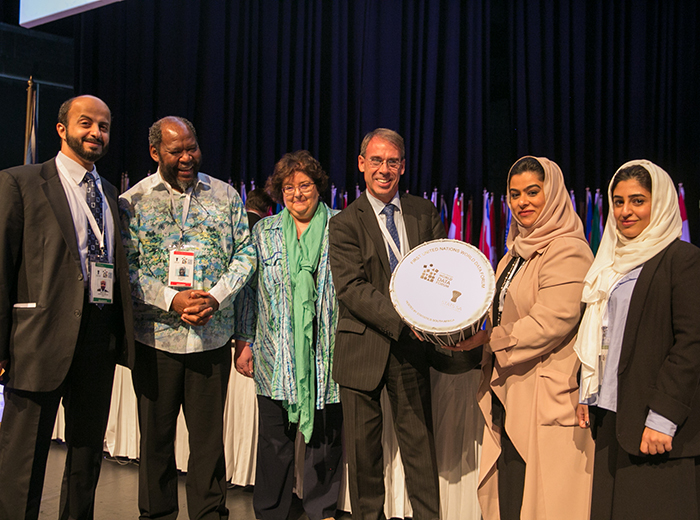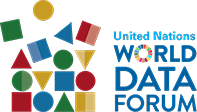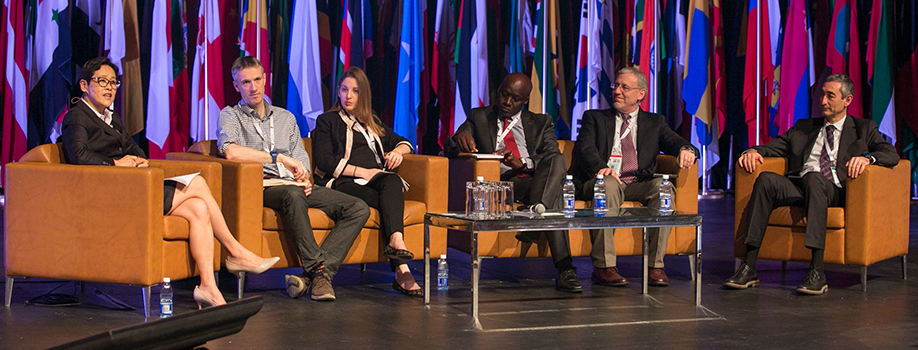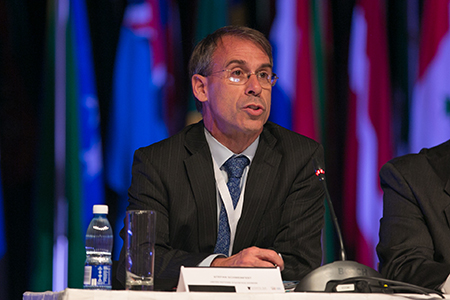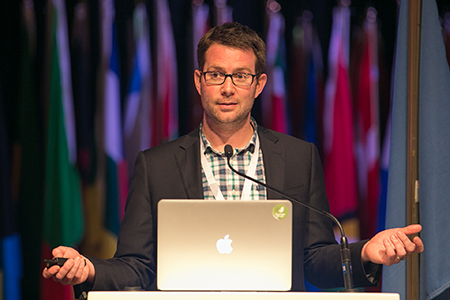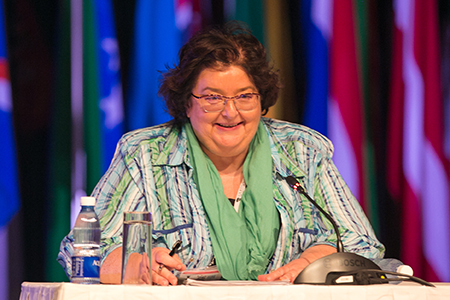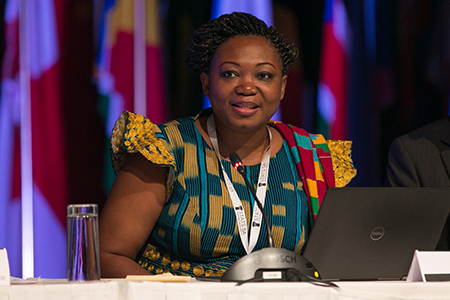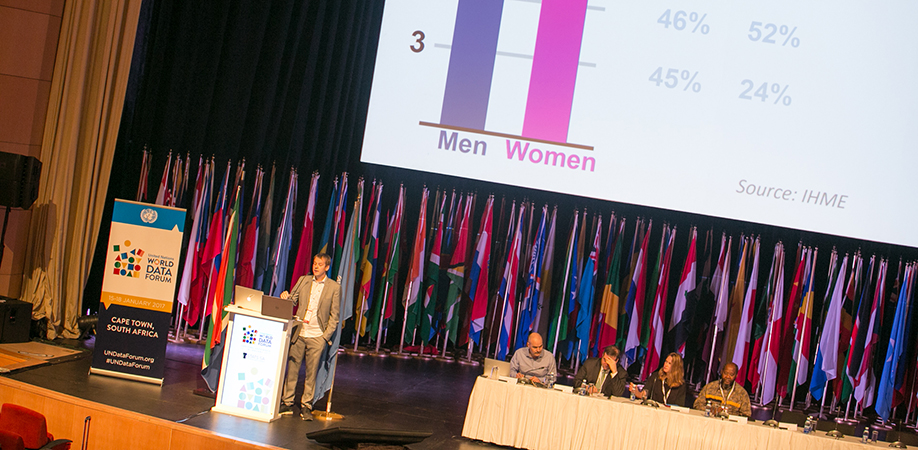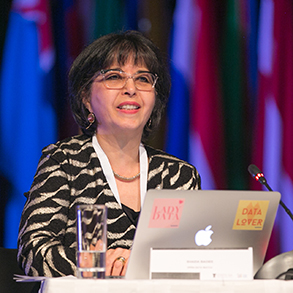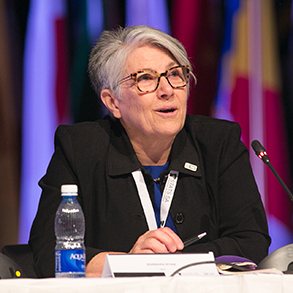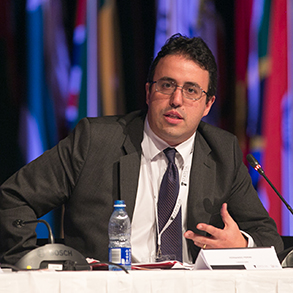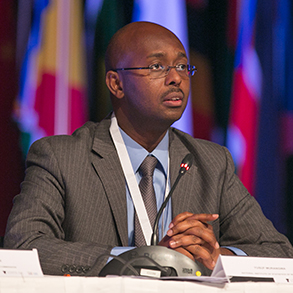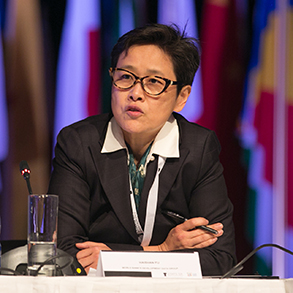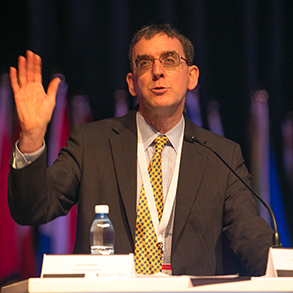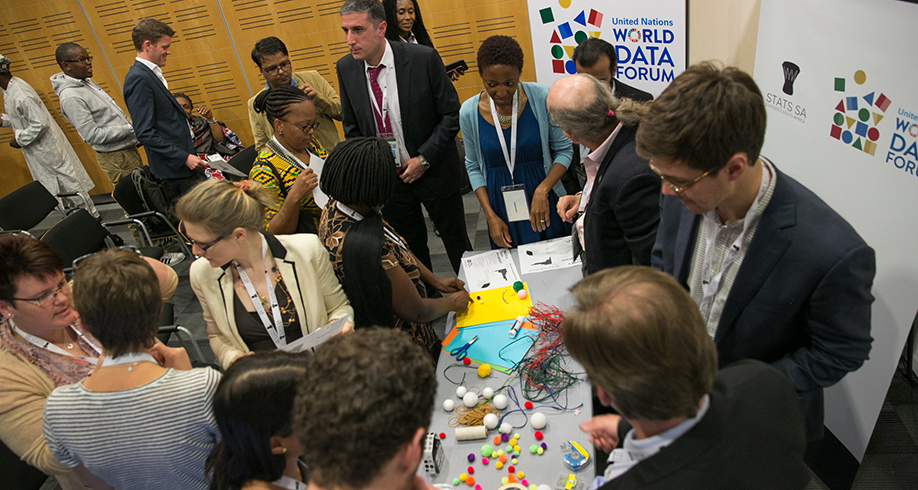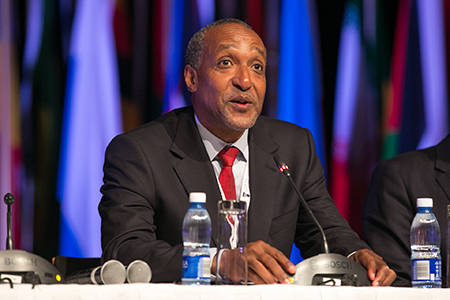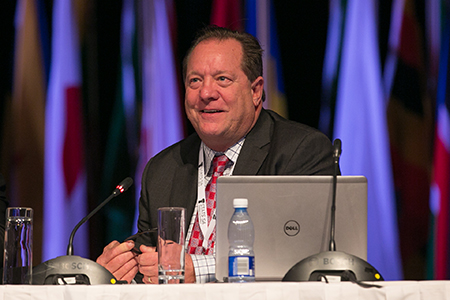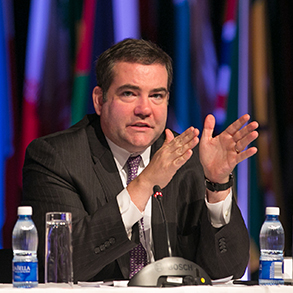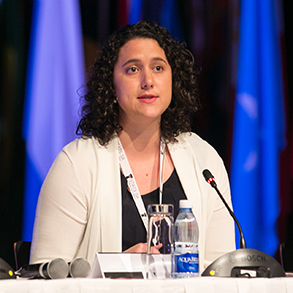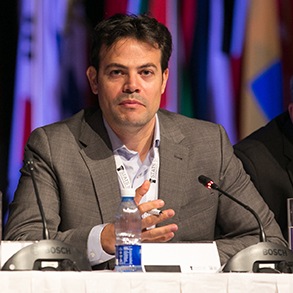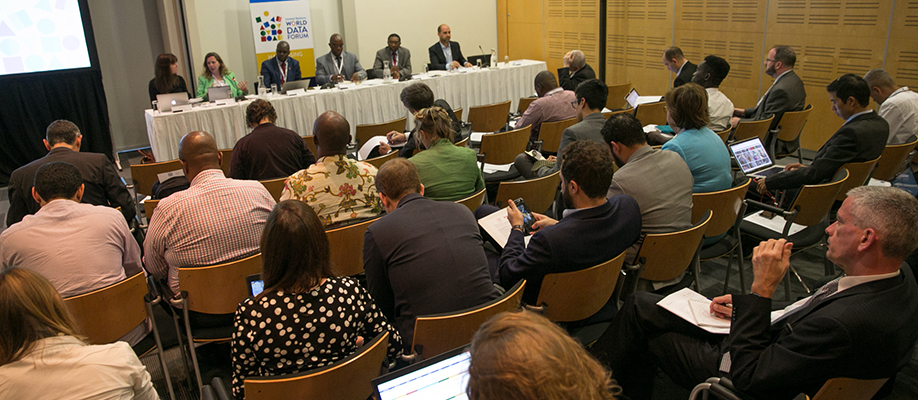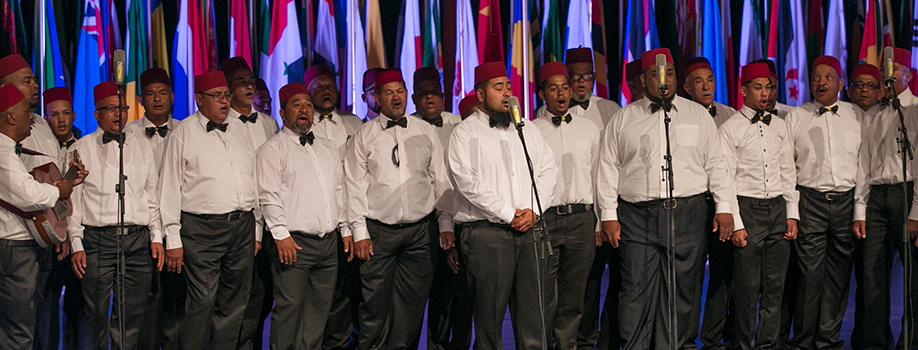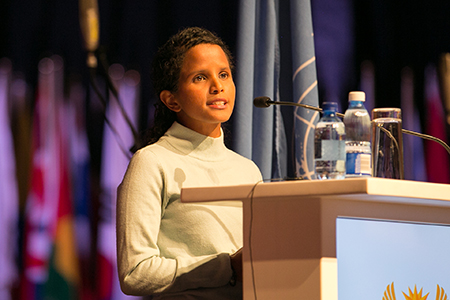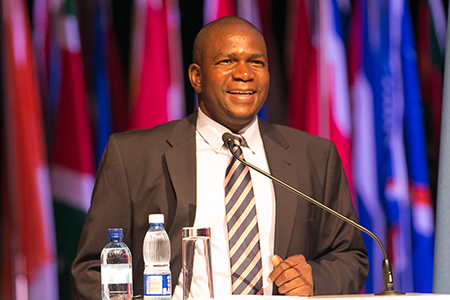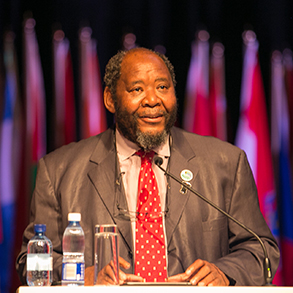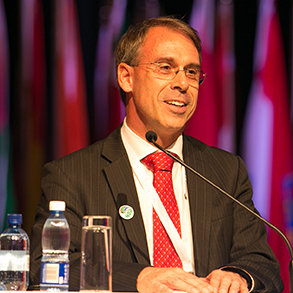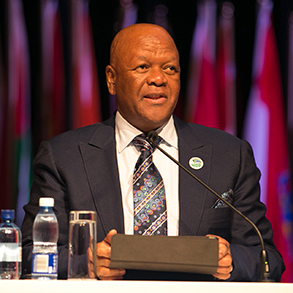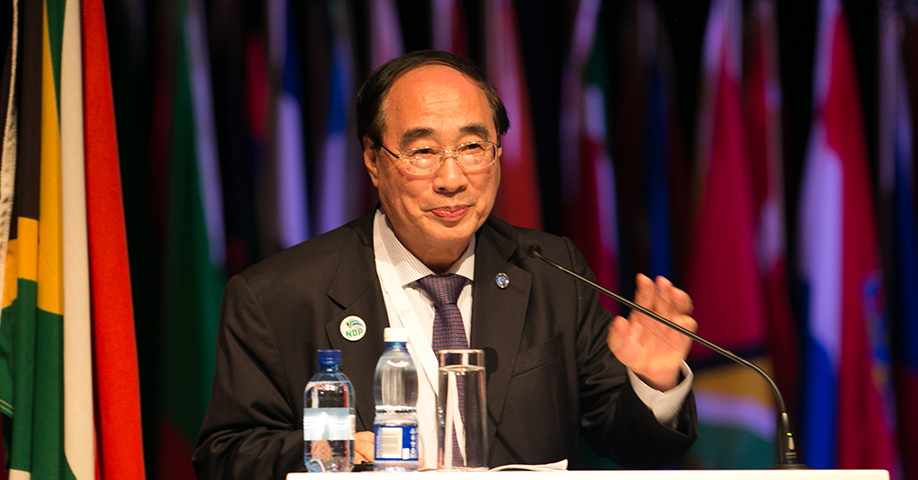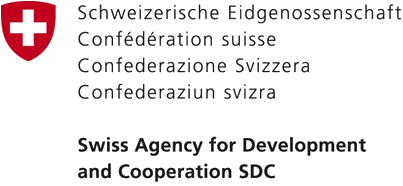1st UN World Data Forum
15-18 January 2017 | Cape Town, South Africa
Summary Highlights, 15 - 18 January 2017
Download ENB+ Meeting Report |
||||||
Receive our ENB+ bulletins and reports by email: |
||||||

| Follow @iisdrs | ||
Wednesday, 18 January 2017
|
During the closing plenary session, John Pullinger, Chief Executive, UK Statistics Authority, invited panelists to provide final thoughts on the way forward and urged participants to “step up” as the custodians of one of the planet’s most precious assets: statistics. On partnerships and collaborations, Lisa Bersales, National Statistician, the Philippines, suggested that, traditionally, statisticians have used very clear ingredients and the usual recipes, but now, after discovering colleagues from different spheres at the Forum, they need to learn how to use new partnerships and tools to “cook more nutritious and delicious food.” Gabriella Vukovich, President, Hungarian Central Statistical Office, noted that national statistical offices, as central managers of information in countries, need to use their best qualities and assets, such as structured thinking and preference for standards, and make others use them as well. Nnenna Nwakanma, Africa Regional Coordinator, World Wide Web Foundation, stressed the importance of partnerships at all levels and underscored the need to communicate with everyone, including those not digitally enabled, and break down scientific knowledge in a manner easy to understand by all. To close the Forum, Stefan Schweinfest, Director, Statistics Division, UNDESA, emphasized its success in bringing people together and generating new thinking, interactions, partnerships, ideas and actions. He said the Global Action Plan is only the beginning, and there is work to do in order to achieve results on the Plan before the second Forum, in two years’ time. Pali Lehohla, Statistician General, Statistics South Africa, expressed thanks to all involved in organizing the Forum and to all participants for attending. Schweinfest closed the first UN World Data Forum at 5:30 pm. |
||
IISD Reporting Services, through its ENB+ Meeting Coverage, provided daily web coverage and a summary report from the 1st UN World Data Forum. Our summary report is available in HTML and PDF format. |
||
+ Visit the web coverage for Wednesday, 18 January 2017 | ||
|
|
|
|
|
|
Tuesday, 17 January 2017
|
A number of resources and projects were announced or demonstrated throughout the day, including: the Open Algorithm project (OPAL), which serves as a forum through which open algorithms can extract key development data; the Joined-up Data Alliance, which is a coalition of open data standards setters, users and advocates collaborating on the development and usage of data standards; data.world, which is a social network for “data people”; “Dollar Street"”, which is the largest systematic image bank to document home life for people with different income levels around the world; and the Global Reporting Initiative’s sdgcompass.org, which helps companies measure their contributions to the SDGs. In addition, the International Roadmap on Open Data, which summarizes the proceedings of the International Open Data Conference 2016 and includes an action plan, was launched. Participants attended a gala dinner in the evening, sponsored by MTN South Africa. |
||
+ Visit the web coverage for Tuesday, 17 January 2017 | ||
|
|
|
|
|
Monday, 16 January 2017
|
Other speakers during the morning session shared experiences from South Africa, China and Hungary, and discussed how geographical information systems (GIS) can provide a framework for organizing SDG data. Enrico Giovannini, Co-Chair, Independent Expert Advisory Group on the Data Revolution for Sustainable Development, urged participants to increase the pace of collecting and analyzing data, as the current pace is not sufficient to address the SDGs and lags behind the work being done by private sector institutions. Stefan Schweinfest, Director, Statistics Division, UN DESA, underscored the need for rules and principles in this new “national data architecture” to support national-level decision making. Pali Lehohla, Statistician-General, South Africa, stressed that data are a public good and called for: coordination through standardization; the separation of property interests from data manipulation; and legislative reform that takes into account the SDGs. Participants proceeded to engage in 26 parallel panels throughout the day, as well as a panel during which the Forum theme of “New approaches to capacity development for better data” was introduced. The Forum’s other themes are: Innovations and synergies across different data ecosystems; Leaving no one behind; Understanding the world through data; Data principles and governance; and The way forward: a Global Action Plan for data. |
||
+ Visit the web coverage for Monday, 16 January 2017 | ||
|
|
|
|
|
|
|
Sunday, 15 January 2017
|
Calling for the strengthening of ties, Xanthea Limberg, Cape Town Mayoral Committee, underlined the goal of the Forum to intensify cooperation among statisticians, policymakers, civil society actors, the private sector, academia and other stakeholders to harness the power of data for sustainable development. Pali Lehohla, Statistician-General, Statistics South Africa, called for thought leadership within the data community to fearlessly eradicate inaccurate or false statistics, and emphasized the role of data and statistics in achieving the Sustainable Development Goals (SDGs) by 2030. Stefan Schweinfest, Director, UN Statistics Division, expressed the desire to bring more people into the data family and said that the UN, which brings people together, is proud to sponsor the UN World Data Forum. Wu Hongbo, UN Under-Secretary-General for Economic and Social Affairs, said the first UN World Data Forum is an important milestone towards ensuring the full implementation of the 2030 Agenda for Sustainable Development. He also highlighted the launch of the Global Action Plan for Sustainable Development Data as a key outcome of the Forum. Jeff Radebe, Minister in the Presidency for Planning, Monitoring and Evaluation, and Chairperson of the National Planning Commission of South Africa, said open government cannot succeed without open data that is freely accessible to all citizens, and that “numbers will form the bedrock of a better life for all.” Lehohla and Radebe then presented lifetime achievement in statistics awards to: Katherine Wallman, former Chief US Statistician; Amina J. Mohammed, UN Deputy Secretary-General; Hans Rosling, Co-Founder and Chair, Gapminder Foundation; and Enrico Giovannini, Co-Chair of the Secretary-General’s Independent Expert Advisory Group on the Data Revolution for Sustainable Development. |
||
+ Visit the web coverage for Sunday, 15 January 2017 | ||
|
|
|
|
|
|
|
Swiss Agency for Development and Cooperation (SDC)
